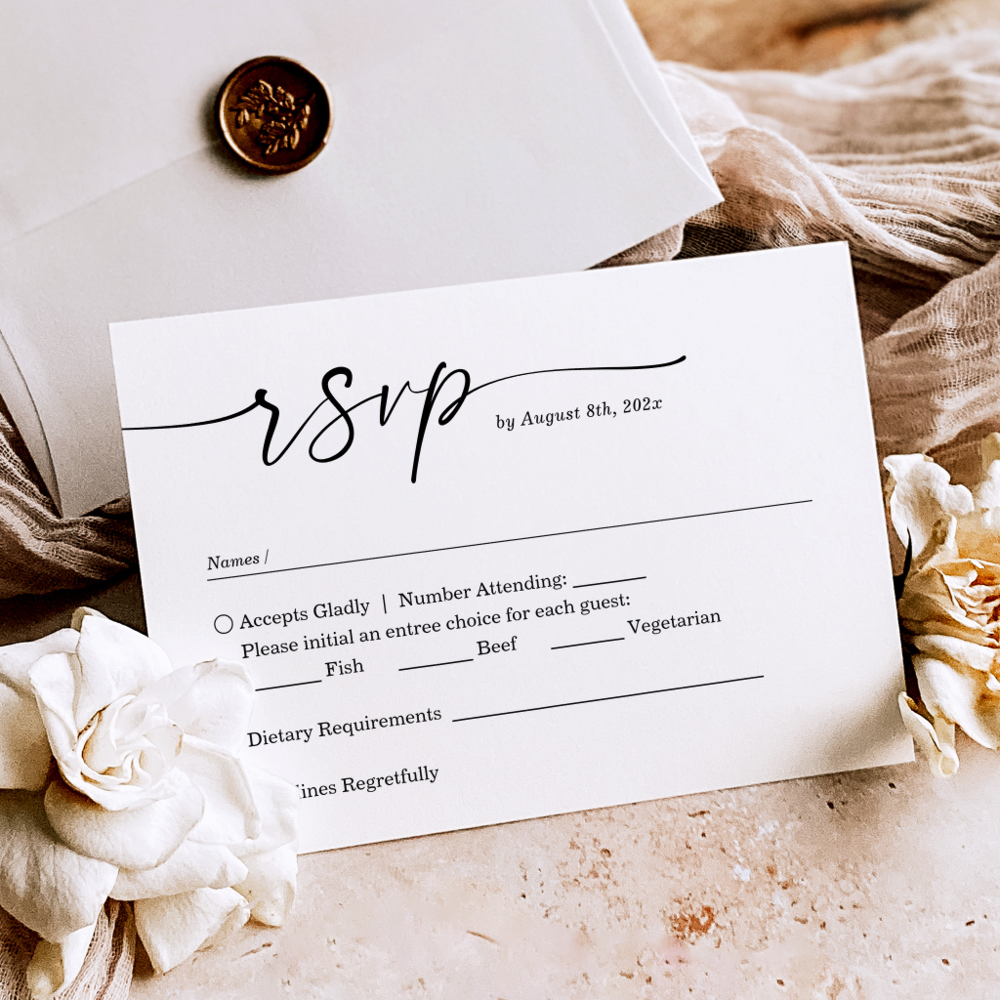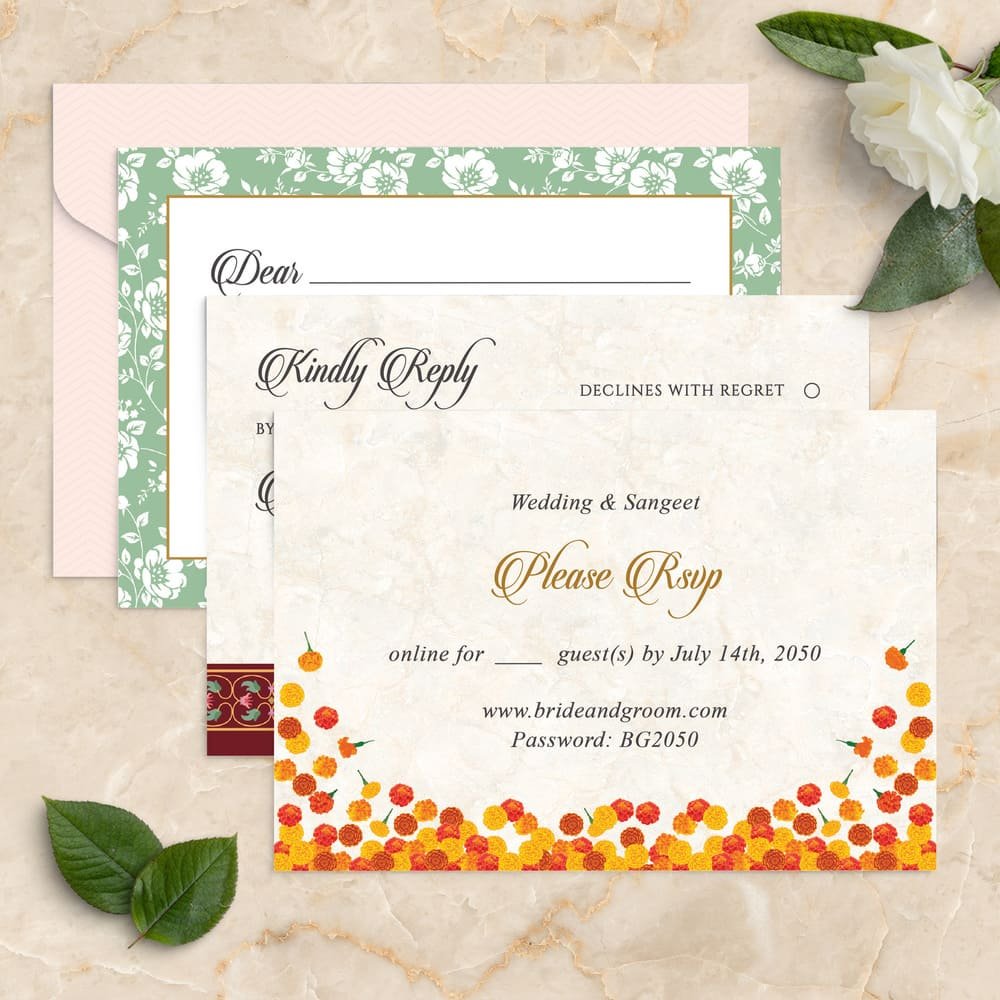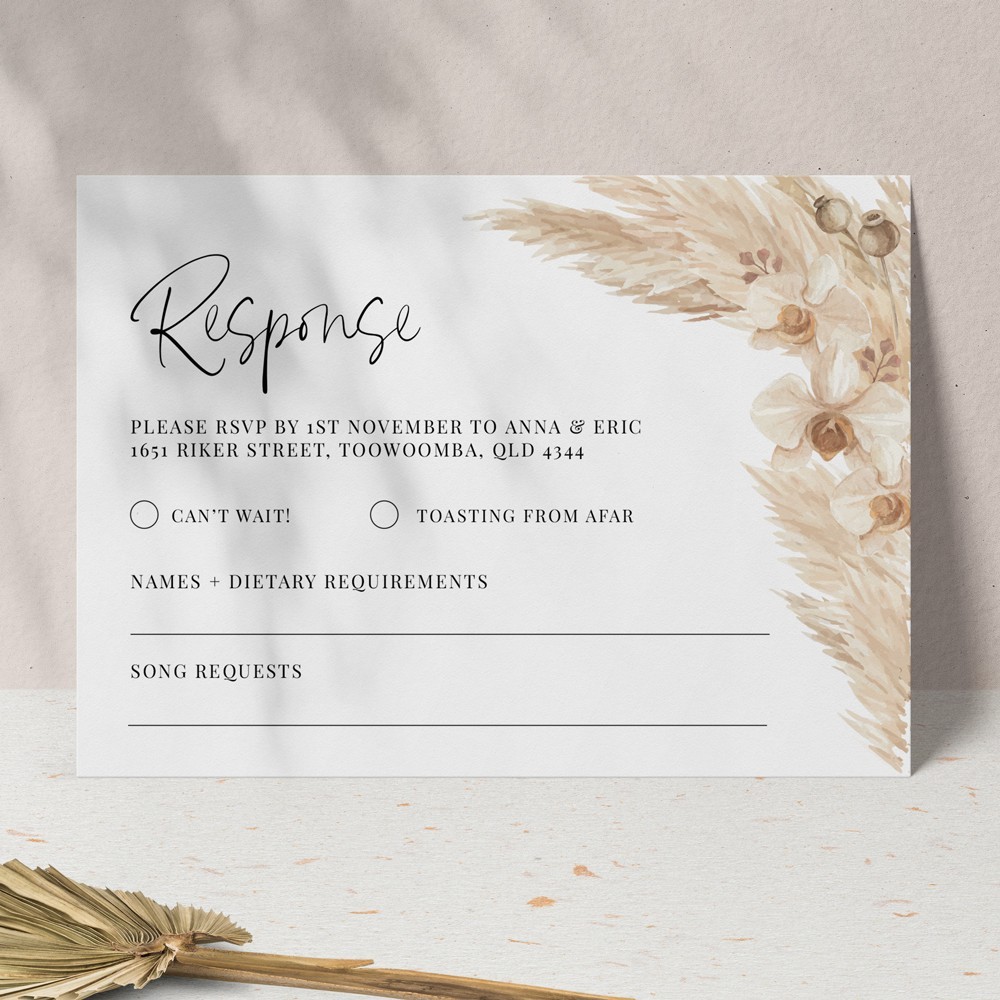Importance of Setting an RSVP Deadline
When should guests rsvp by for a wedding? A timely RSVP deadline is the glue that holds the intricate details of your wedding plans together. This critical date prompts guests to respond, allowing you to move forward with firm numbers in hand. Delays in responses can cascade into slowdowns across various aspects of planning, from seating arrangements to food orders.
Necessary Information for Caterers and Venues
Caterers and venue operators hinge their services on the number of attendees. They require definitive guest counts to prepare meals, allocate space, and fine-tune details to accommodate all. Without confirmed RSVPs, they face challenges that could disrupt your event’s success.
For instance, foreseeing how much food to order is impossible without knowing how many will dine. Likewise, venues need accurate numbers to set up the ceremony and reception areas. Staffing levels, from waiters to security, also depend on the size of the gathering.
Facilitating Event Planning and Logistics
Beyond caterers and venues, a set RSVP deadline crystalizes other planning elements. It means that you can confidently make decisions on the layout, the flow of the ceremony, and even the vibe of the event.
Knowing who will attend shapes the event’s atmosphere. It sharpens focus on details such as music playlists, favors, and even the written program’s quantity. It also curtails last-minute rushes and the stress that comes with uncertainty. When guests know the importance of their timely reply, they contribute to a smoother, more organized celebration.

Selecting the Appropriate RSVP Due Date
Choosing the right time for guests to RSVP by for a wedding is a balancing act. You need enough time to finish all details, but you also want to give guests enough time to decide.
Considerations for Destination Weddings
For weddings far from home, guests need more time to plan. Send invites up to 12 months early and set RSVPs at least 3 months before. This gives time for booking flights and hotels.
Accounting for Guest List Size
The larger your guest list, the earlier your RSVP deadline should be. More guests mean more follow-up. Aim for a deadline 4 to 8 weeks before your day to chase up any stragglers.
Catering and Venue Requirements for Head Count
Caterers and venues often need final numbers at least 2 weeks ahead. This allows them to order food and arrange seating. So, choose an RSVP deadline a week or two before their cut-off. This gives you time to follow up and finalize the list.
Communicating the RSVP Deadline Effectively
Effective communication of the RSVP deadline ensures guests are aware and adhere to it.
Wording and Placement on Invitations
For clarity, feature the RSVP deadline prominently on invites. State it plainly as ‘RSVP by [date]’. Adding the deadline to both the invite and the response card reinforces its importance.
Utilizing Wedding Websites and Reminders
Use a wedding website to echo the RSVP deadline. Set reminders as the date nears to prompt action. Sending a polite reminder email a week before the deadline can also encourage responses. Reminders help manage guest confirmations and headcounts.

Managing the RSVP Process
Proper management of guests rsvp for a wedding ensures you know who will attend your wedding. Let’s dive into the key steps of handling the RSVP procedure effectively.
Tracking and Organizing Guest Responses
Organizing guest replies is vital. Create a spreadsheet to track attendance. Update it as RSVPs arrive. This makes follow-up easier. Use tools like online forms for efficiency.
Handling Late or Missing RSVPs
Expect some guests to miss deadlines. Have a plan ready. Call or message them for confirmation. Be polite but firm about needing an answer. This helps finalize numbers quickly.
Strategy for B-List Invitations
If A-list guests decline, refer to your B-list. Send invites promptly to give these guests time to respond. Ensure clear deadlines for B-list RSVPs as well.
Final Preparations After the RSVP Deadline
Once the deadline has passed, key tasks can commence, shaping the final contours of the wedding day.
Adjusting Seating Charts and Table Plans
Quickly react to guest confirmations or declines by altering table layouts. Shorten your to-do list by finalizing seating arrangements promptly.
Confirming Final Headcount with Vendors
Lock in the attendee numbers with caterers, the venue, and others needing accurate counts. Erase uncertainty before the event with precise figures.
Ordering Wedding Favors and Final Details
Make last purchases like guest mementos, ensuring enough for each attendee. Tick off final elements such as decorations and personalized items now.
RSVP Etiquette and Best Practices
Proper guests rsvp for a wedding etiquette is crucial for your wedding’s smooth planning. Stick to best practices for a stress-free lead-up to your special day.
Guiding Guests on Response Etiquette
To help guests, include a brief note on etiquette with your invitations. Remind them that a prompt reply is appreciated and necessary. This sets the tone for their response and underscoring the importance of the deadline.
Provide clear instructions on how to RSVP. Whether it is through a reply card, email, or a wedding website, make the process as simple as possible. This will encourage timely responses.
Mention that not only is their presence important, but their timely confirmation is key to planning. Be courteous in your language, thanking them in advance for their prompt response. This approach helps guests understand their role in the wedding’s success.
Setting Expectations for Timely Responses
Communicate the RSVP deadline clearly on all materials. This includes your invitations, wedding website, and any reminders you send out.
You may also consider sending a friendly reminder as the deadline approaches. This nudge can be via email or text, and it should reinforce the need for an answer. For guests who may not be used to wedding protocols, this can be very helpful.
Make it clear that the date listed is the final day you can accept responses. Explain that it’s not just a formality, but an essential part of your planning. This will instill a sense of urgency and discourage last-minute replies.
By establishing clear communication and expectations, you set the stage for a well-organized event. This will ultimately lead to a more enjoyable experience for everyone involved.

Additional Considerations for the RSVP Timeline
When planning your wedding, it’s crucial to take additional factors into account beyond the basic timeline. These considerations can greatly affect when you need guests to RSVP by.
Travel Arrangements for Guests
If many guests will travel to your wedding, you should give extra time for RSVPs. Guests need to book flights and hotels early. Consider setting a deadline that allows them to plan. This could be several months before the event.
Traveling guests might also need time off from work. Think about setting a deadline well ahead of time. This gives them a better chance to make the necessary arrangements.
Unique Circumstances That May Influence Deadline
Other unique events or holidays may also shape your RSVP deadline. If your wedding is near a major holiday, guests may need more notice. They must plan their travel and accommodations early, as these times can be busy.
Also, consider any cultural or family events that could clash with your wedding. If such events are known, adjust your RSVP deadline to respect these dates.
Lastly, sometimes personal circumstances dictate flexibility. If close family members have pressing commitments, it’s kind to factor these into your planning. Extend your deadline as needed, to allow important guests to participate.
